High-Level Policy Session 8: WSIS Action Lines and the 2030 Agenda/ Climate Change
WSIS
Session 147
WSIS Action Lines and the 2030 Agenda
The World Summit on the Information Society (WSIS) was a ground-breaking Summit, held in recognition of the vast, sweeping changes digital technologies would wreak on our society, economy and way of life. The Summit brought together many different players in recognition of a multi-stakeholder model for the Internet and information society.
Since the adoption of the Sustainable Development Goals (SDGs) the WSIS Process has been aligned with the 2030 Agenda for Sustainable Development. The effective implementation of the WSIS Action Lines can help accelerate the achievement of the SDGs. To that end, the WSIS-SDG Matrix , developed by the UN Action line Facilitators, clearly shows the linkage between each Action line and the 17 SDGs and provides rationale for each. Since 2015, the agenda and outcomes of the annual WSIS Forum show clear linkages between the WSIS Action
Lines and SDGs.
The 2030 Agenda acknowledges that “the spread of information and communication technology and global global interconnectedness has great potential to accelerate human progress, to bridge the digital divide and to develop knowledge societies, as does scientific and technological innovation across areas as diverse as medicine and energy”. Bridging the digital gap and connecting the unconnected remain a serious challenge.
Climate Change
Governments, in cooperation with other stakeholders are encouraged to use and promote ICTs as an instrument for environmental protection and the sustainable use of natural resources.
Government, civil society and the private sector are encouraged to initiate actions and implement projects and programmes for sustainable production and consumption and the environmentally safe disposal and recycling of discarded hardware and components used in ICTs.
Establish monitoring systems, using ICTs, to forecast and monitor the impact of natural and man-made disasters, particularly in developing countries, LDCs and small economies.
Geneva Declaration of Principles, https://www.itu.int/net/wsis/docs/geneva/official/dop.html
About half the world's people access and use the Internet. The other half do not. Many of the unconnected live in least developed countries, landlocked developing countries and small island developing states. Globally, over 1 billion new internet users have been added over the last 4 years, however substantial digital divides persist between more and less connected countries, communities, and people. Enabling all the world ́s people to access and use the Internet—and removing digital divides—remains a challenge that needs to be addressed if the world community is to achieve the United Nations Sustainable Development Goals (SDGs) by 2030. [1]
[1] Digital inclusion of all: https://www.itu.int/en/mediacentre/backgrounders/Pages/digital-inclusion-of-all.aspx
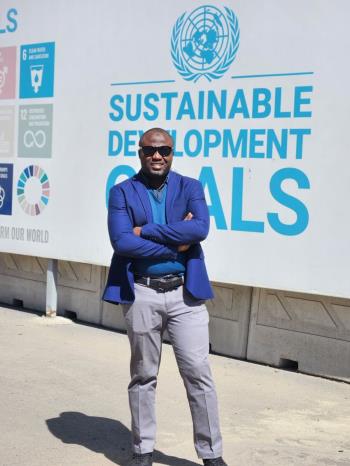
.jpeg?maxwidth=500)
Hon. Eng. Kundo Andrea Mathew is the Deputy Minister of Ministry of Information, Communication and Information Technology of Tanzania.

H.E. Maria-Manuela Catrina serves in the Romanian National Cyber Security Directorate as Deputy Director, Undersecretary of State. The National Cyber Security Directorate is the competent authority at the national level for the national civilian cyberspace, including the management of risks and cyber incidents.
Ms. Maria Manuela Catrina has a background in mathematics and computer science, as well as extensive expertise in international relations and security. In the early 2000s she joined the high levels of government as Advisor for the Romanian Prime Minister, the path she continues in various positions in the Romanian Parliament and Government.
Ms. Catrina who was nominated among top 50 Women of Influence in Cyber-security in Europe is also a member in the Women4cyber Council since 2021. She is passionate about digital transformation, cyber security and promoting women in technology.
Between 2017 and 2019 as Secretary of State in the Ministry of Communications and Information Society, Ms. Catrina contributed to the complex preparations for Romania’s Presidency of the Council of the European Union. Her mandate includes broader aspects as well as more specialized areas of the Digital Agenda - such as cybersecurity, AI and robotics, also promoting women in tech. In addition to handling legislative files stemming from EU’s Digital Agenda within the Transport, Telecommunications and Energy Council, she also coordinates a number of high-level national groups tasked with ensuring the security and resilience of Romania’s IT and telecommunications infrastructure.
She actively participates in various high-level UN specialized agencies activities, sharing and promoting the vision Romania has on information and communication technologies (ICTs).
Ms. Catrina is also the Director of the Ovidiu Sincai European School, an NGO that delivers the key political Leadership Programme in Romania for the last 16 years.
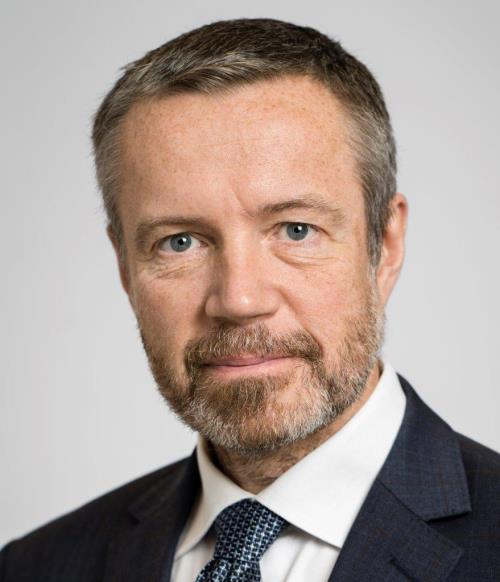
Appointed by the Swedish Government, Dan Sjöblom is the Director-General of the Swedish Post and Telecom Authority (PTS) since February 1, 2017.
He was the Chair of the Body of European Regulators for Electronic Communications (BEREC) for 2020 and also vice Chair of The Eastern Partnership Electronic Communications Regulators Network (EaPeReg) in 2021. He was recently elected to become the Chair of The European Regulators Group for Postal Services (ERGP) in 2024.
Prior to taking up his position, Mr. Sjöblom was the Director General of the Swedish Competition Authority from 2009 to 2017.
He is also board member of the Swedish Broadband Council.
Mr. Sjöblom performed various functions as a civil servant at the European Commission between 1996-2009. He holds a Master of Laws from Stockholm University.

Nele Leosk, PhD, serves as the Ambassador-at-Large for Digital Affairs at the Ministry of Foreign Affairs of Estonia, being responsible for the development and coordination of Estonia’s digital diplomacy.
Over the past twenty years, she has advised political and public sector leaders in digital governance and digital economy in more than forty countries in Central and Eastern Europe, South-Eastern Europe, Middle East, Central Asia, and Africa. Apart from government work, she has experienced the life of private sector, international and inter-governmental organisations such as the UNDP, OECD as well as academia.
As a promoter of an open and inclusive digital society, Nele is the member of the World Economic Forum’s Global Future Council on Technology Policy, GovStack lead for Estonia, Chair of the Digital Cooperation and Diplomacy Network, and member of several networks on women in tech.
Nele holds a PhD in Political and Social Sciences from the European University Institute (EUI), Italy. She is a former Fulbright-Schuman grantee at the National Centre for Digital Government at the University of Massachusetts Amherst and at the Governance Lab at New York University, USA.
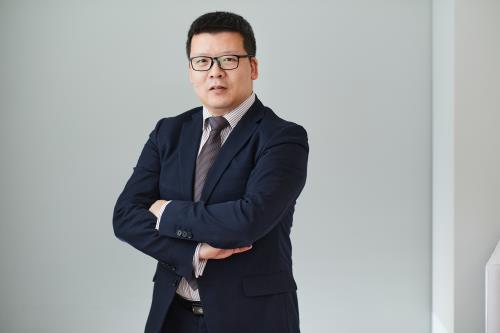
Dr Hui Cao has broad experience in the telecommunications industry ranging from the operator to academic research and the vendor. He has a deep knowledge of market trends, industry challenges, network deployment and technical developments.
As Head of Strategy & Policy at Huawei’s EU Public Affairs and Communication Office based in Brussels, Dr Cao is responsible for regulatory issues on connectivity and innovative ICT technologies. Prior to this position, he was the Network CTO in Huawei Western Europe region with a focus on the latest technologies exploring cost-effective solutions and practices in building experience-oriented and future-proof broadband networks with Simplicity, Automation and Intelligence. He also worked with China Telecom on broadband network management and development.
Dr Cao obtained his doctoral degree in Electronic Engineering from Oxford Brookes University in the UK.
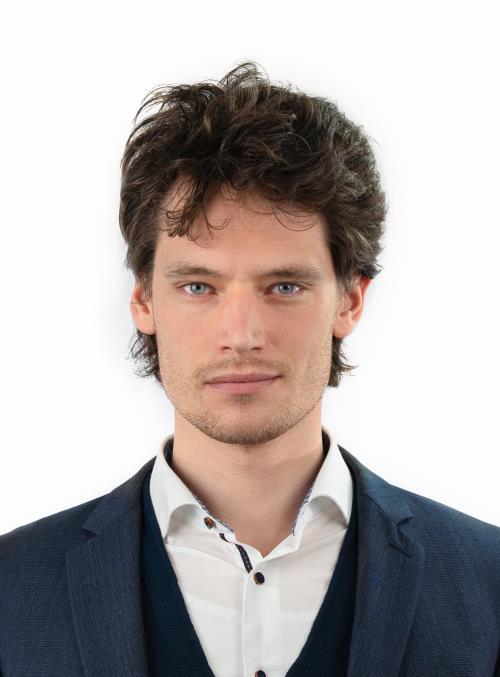
Eng. Marc Vetter is the Co-Founder, President of the Board and CEO of 4QT
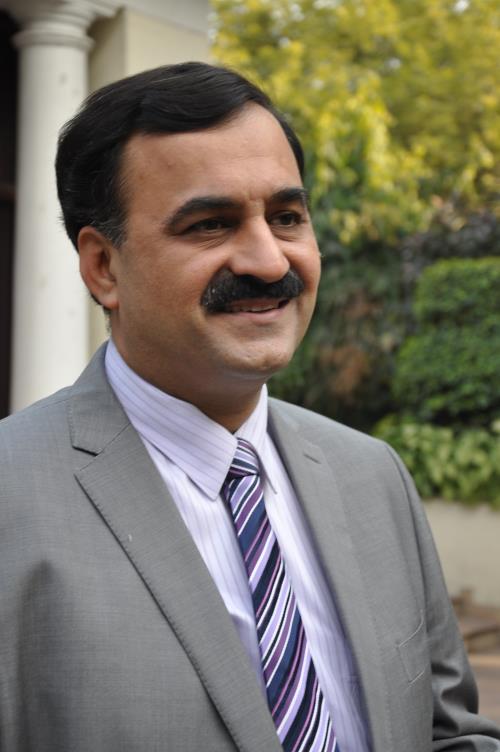
While a practicing Advocate, Supreme Court of India, Dr. Pavan Duggal has made an immense impact with an international reputation as an Expert and Authority on Cyber Law, Cyber Security Law, Artificial Intelligence Law & E-commerce law.
Dr. Duggal has been acknowledged as one of the top 4 Cyber Lawyers around the world. WDD [World Domain Day] recognizes him as one of the top 10 Cyber Lawyers around the world.
Dr. Pavan Duggal, is the Founder & Chairman of International Commission on Cyber Security Law. He is also the President of Cyberlaws.Net and has been working in the pioneering area of Cyber Law, Cyber Security Law & Mobile Law.
Pavan is also heading the Artificial Intelligence Law Hub and Blockchain Law Epicentre. He is the Founder-cum-Honorary Chancellor of Cyberlaw University.
Dr. Pavan Duggal is the Chief Evangelist of Metaverse Law Nucleus, Conference Director of International Conference On Metaverse And Law – Opportunities & Challenges and is also the Conference Director of the International Conference on Cyberlaw, Cybercrime & Cybersecurity, being world's only authoritative Conference on Cyberlaw, Cybercrime & Cybersecurity. In addition, Dr. Duggal has also conducted various Round Tables on Cyberlaw, Cybercrime & Cybersecurity over the last couple of years. He has also organized various Thematic Workshops at the previously held ITU WSIS Forums.
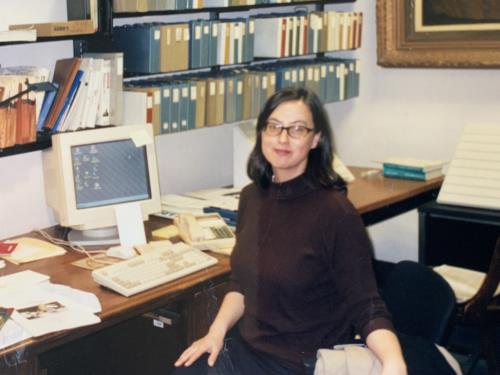
Ms. Plentz is the founder and editor-in-chief of The UN Brief.
In 2017 she was appointed by the European Commission to the High-Level Group of Experts to review the impact of Horizon 2020 and make recommendations for Horizon Europe, the funding mechanism for research and innovation of the European Union.
Previously she was appointed as Officer-in-Charge of UN Radio Portuguese Language Section where she maintained and developed direct engagement with other United Nations agencies for news coverage of the Millennium Development Goals and all other decisions impacting ICTs for Development, and the first WSIS Forum.
She also coordinated the development of strategies to promote and disseminate all news coverage relating to sustainable development in collaboration with the UN Radio leadership, the News and Media Division, and the Office of the Spokesperson of the Secretary General Kofi Annan and other relevant New York-based United Nations agencies
Ms. Plentz promoted the work of UN agencies development work and provided news coverage of LDCs and SIDS representatives attending events at the UN in New York where she contributed to global communications strategies, including content production to highlight the work of the UN with LDCs and SIDS.
-
 C1. The role of governments and all stakeholders in the promotion of ICTs for development
C1. The role of governments and all stakeholders in the promotion of ICTs for development
-
 C2. Information and communication infrastructure
C2. Information and communication infrastructure
-
 C3. Access to information and knowledge
C3. Access to information and knowledge
-
 C4. Capacity building
C4. Capacity building
-
 C5. Building confidence and security in use of ICTs
C5. Building confidence and security in use of ICTs
-
 C6. Enabling environment
C6. Enabling environment
-
 C7. ICT applications: benefits in all aspects of life — E-government
C7. ICT applications: benefits in all aspects of life — E-government
-
 C7. ICT applications: benefits in all aspects of life — E-business
C7. ICT applications: benefits in all aspects of life — E-business
-
 C7. ICT applications: benefits in all aspects of life — E-learning
C7. ICT applications: benefits in all aspects of life — E-learning
-
 C7. ICT applications: benefits in all aspects of life — E-health
C7. ICT applications: benefits in all aspects of life — E-health
-
 C7. ICT applications: benefits in all aspects of life — E-employment
C7. ICT applications: benefits in all aspects of life — E-employment
-
 C7. ICT applications: benefits in all aspects of life — E-environment
C7. ICT applications: benefits in all aspects of life — E-environment
-
 C7. ICT applications: benefits in all aspects of life — E-agriculture
C7. ICT applications: benefits in all aspects of life — E-agriculture
-
 C7. ICT applications: benefits in all aspects of life — E-science
C7. ICT applications: benefits in all aspects of life — E-science
-
 C8. Cultural diversity and identity, linguistic diversity and local content
C8. Cultural diversity and identity, linguistic diversity and local content
-
 C9. Media
C9. Media
-
 C10. Ethical dimensions of the Information Society
C10. Ethical dimensions of the Information Society
-
 C11. International and regional cooperation
C11. International and regional cooperation
-
 Goal 1: End poverty in all its forms everywhere
Goal 1: End poverty in all its forms everywhere
-
 Goal 2: End hunger, achieve food security and improved nutrition and promote sustainable agriculture
Goal 2: End hunger, achieve food security and improved nutrition and promote sustainable agriculture
-
 Goal 3: Ensure healthy lives and promote well-being for all
Goal 3: Ensure healthy lives and promote well-being for all
-
 Goal 4: Ensure inclusive and equitable quality education and promote lifelong learning opportunities for all
Goal 4: Ensure inclusive and equitable quality education and promote lifelong learning opportunities for all
-
 Goal 5: Achieve gender equality and empower all women and girls
Goal 5: Achieve gender equality and empower all women and girls
-
 Goal 6: Ensure access to water and sanitation for all
Goal 6: Ensure access to water and sanitation for all
-
 Goal 7: Ensure access to affordable, reliable, sustainable and modern energy for all
Goal 7: Ensure access to affordable, reliable, sustainable and modern energy for all
-
 Goal 8: Promote inclusive and sustainable economic growth, employment and decent work for all
Goal 8: Promote inclusive and sustainable economic growth, employment and decent work for all
-
 Goal 9: Build resilient infrastructure, promote sustainable industrialization and foster innovation
Goal 9: Build resilient infrastructure, promote sustainable industrialization and foster innovation
-
 Goal 10: Reduce inequality within and among countries
Goal 10: Reduce inequality within and among countries
-
 Goal 11: Make cities inclusive, safe, resilient and sustainable
Goal 11: Make cities inclusive, safe, resilient and sustainable
-
 Goal 12: Ensure sustainable consumption and production patterns
Goal 12: Ensure sustainable consumption and production patterns
-
 Goal 13: Take urgent action to combat climate change and its impacts
Goal 13: Take urgent action to combat climate change and its impacts
-
 Goal 14: Conserve and sustainably use the oceans, seas and marine resources
Goal 14: Conserve and sustainably use the oceans, seas and marine resources
-
 Goal 15: Sustainably manage forests, combat desertification, halt and reverse land degradation, halt biodiversity loss
Goal 15: Sustainably manage forests, combat desertification, halt and reverse land degradation, halt biodiversity loss
-
 Goal 16: Promote just, peaceful and inclusive societies
Goal 16: Promote just, peaceful and inclusive societies
-
 Goal 17: Revitalize the global partnership for sustainable development
Goal 17: Revitalize the global partnership for sustainable development